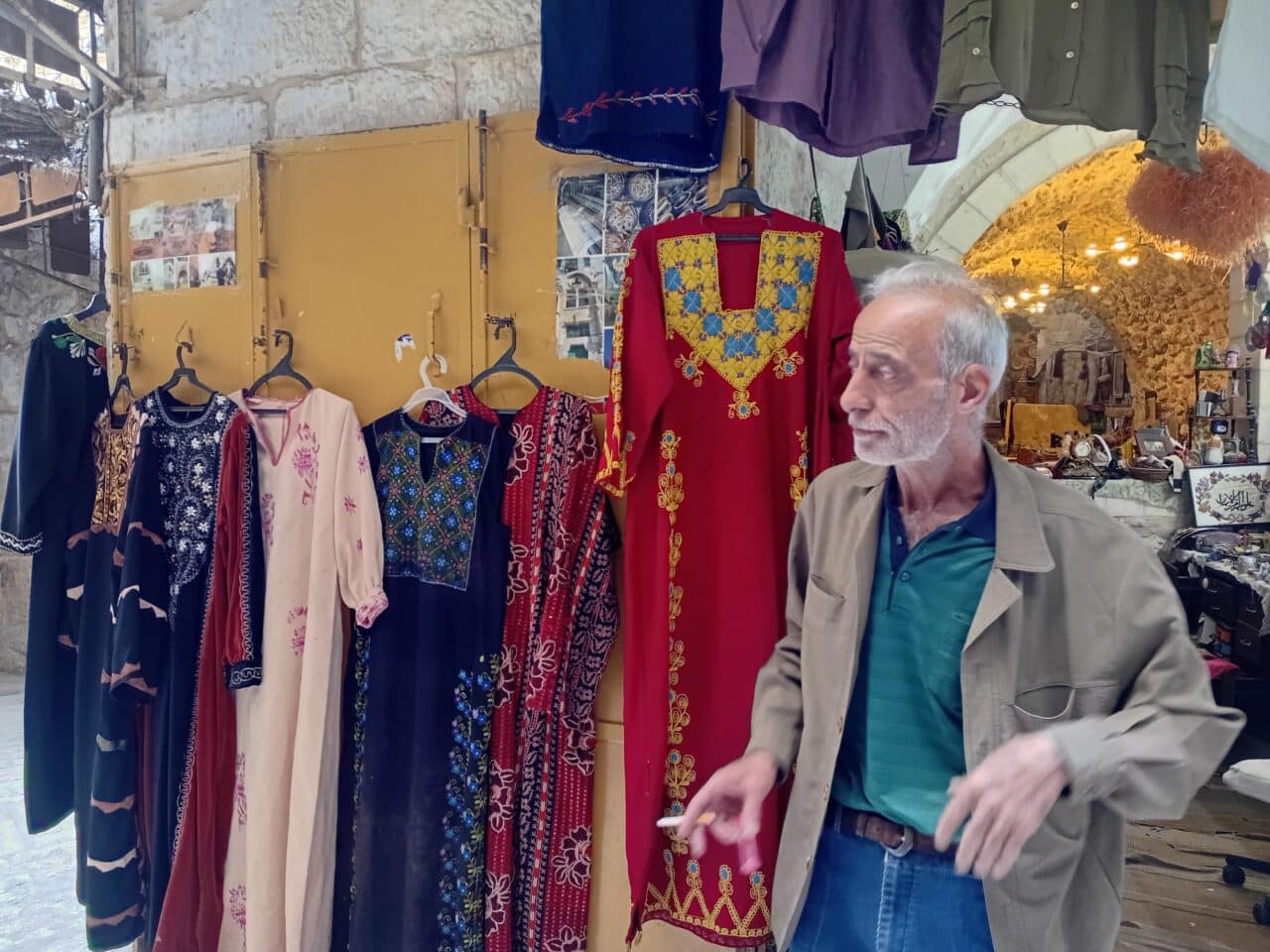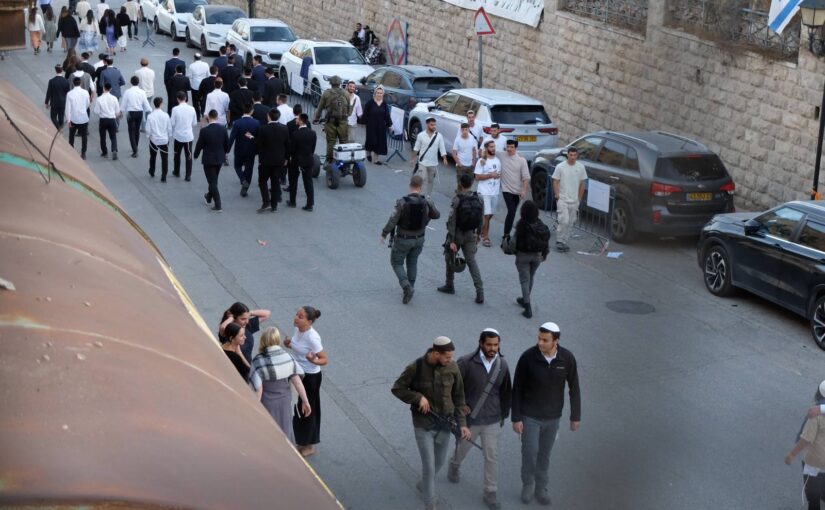Category: Hebron
-
Al-Khalil: Activism on the Edge
October 22 “Hello, they beat this man and took him away for no reason. We don’t know where they took him.”“It is the eighth day of the curfew and I am not allowed out of my house. They don’t even allow us to get babies’ milk, bread, or diapers.”“No one went to school. This is…
-
Rooted in History, Al-Khalil Under Attack
Rooted in History, Al-Khalil Under Attack Standing in the center of the shop in the Old City of Hebron, known as Al Khalil to Palestinians, stands a 300-year old sesame press. Hisham, the shop owner, lights up when we ask him to talk about its history. Hisham shows us a photo from when the press…
-
Settler Harassment During “Shabbat Chayei Sarah” in Al-Khalil
November 21/ 22 – Al-Khalil Music, songs, dancing, prayers and alcohol. This could chracterize a common religious festival anywhere – were it not being used as an excuse for Israeli settlers to attack and raid the Palestinian community, which is already living under segregation since 1997, in the city known as al-Khalil for the Palestinians and…



